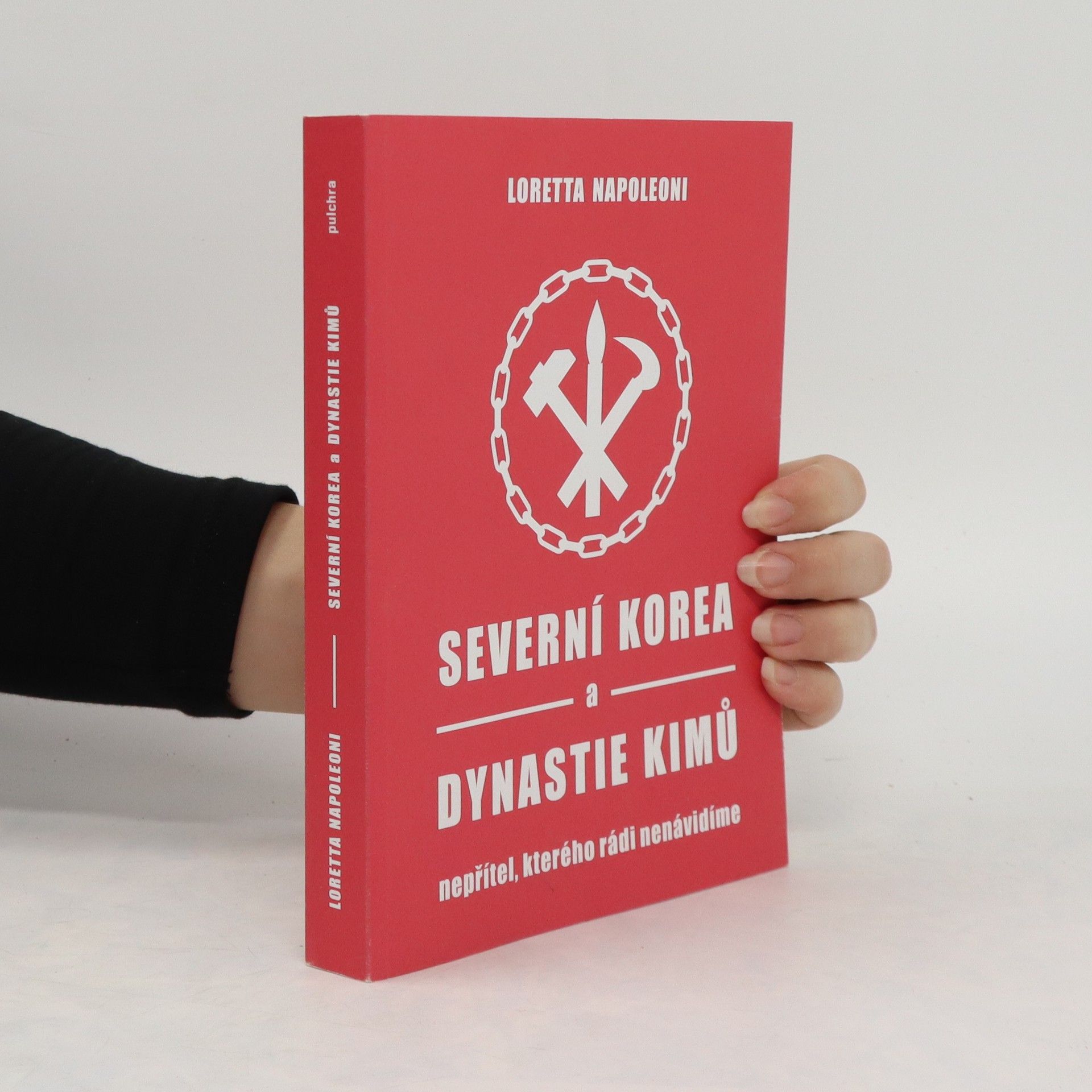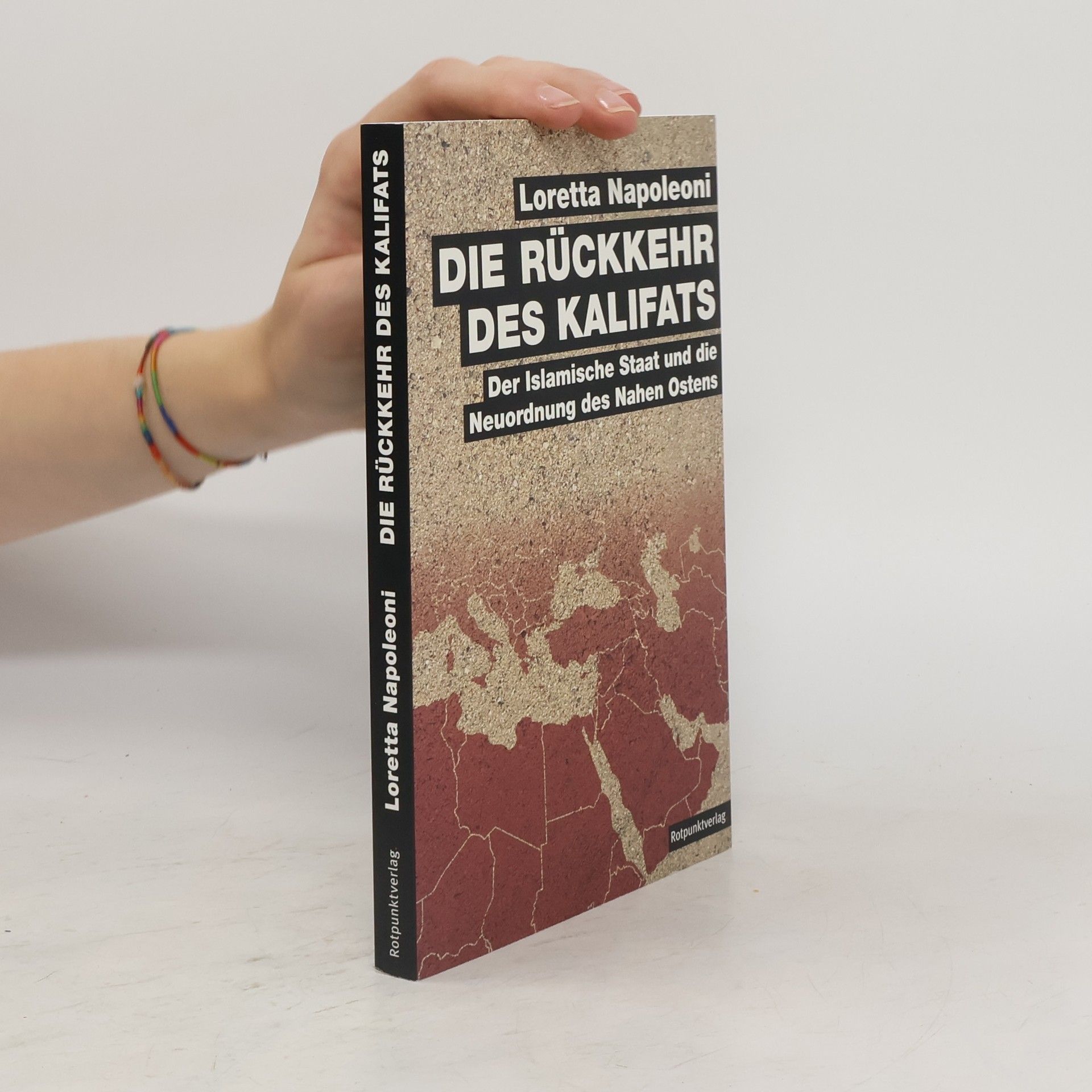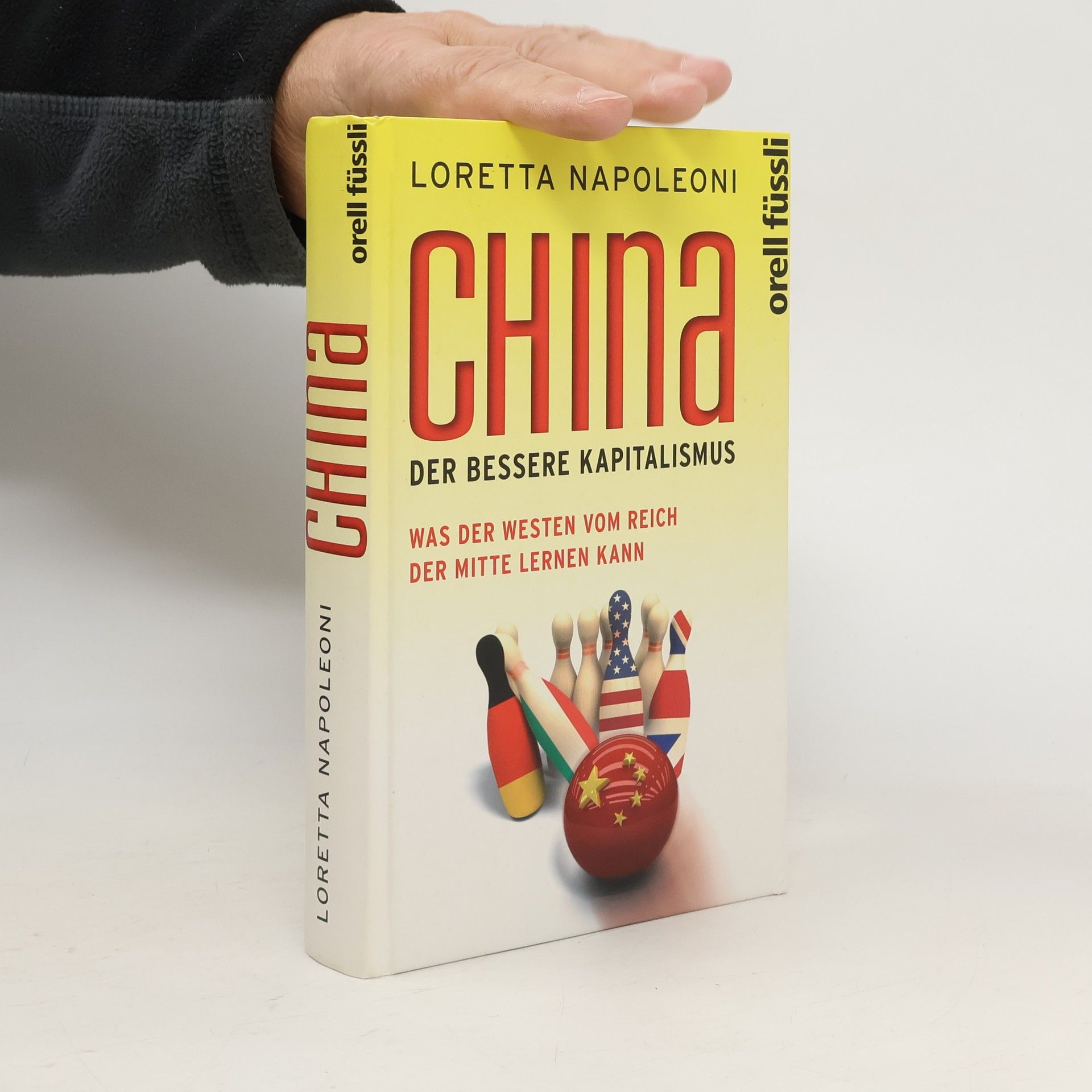Loretta Napoleoni Book order (chronological)
Loretta Napoleoni is a bestselling author specializing in the economics of terrorism and its financing. Her work delves deeply into the motivations and mechanisms that drive terrorist organizations, uncovering the intricate links between economies and violence. Napoleoni draws on extensive interviews with members of terrorist groups to offer a unique perspective on these entities and their global impact. Her analyses provide readers with a penetrating understanding of international security challenges.




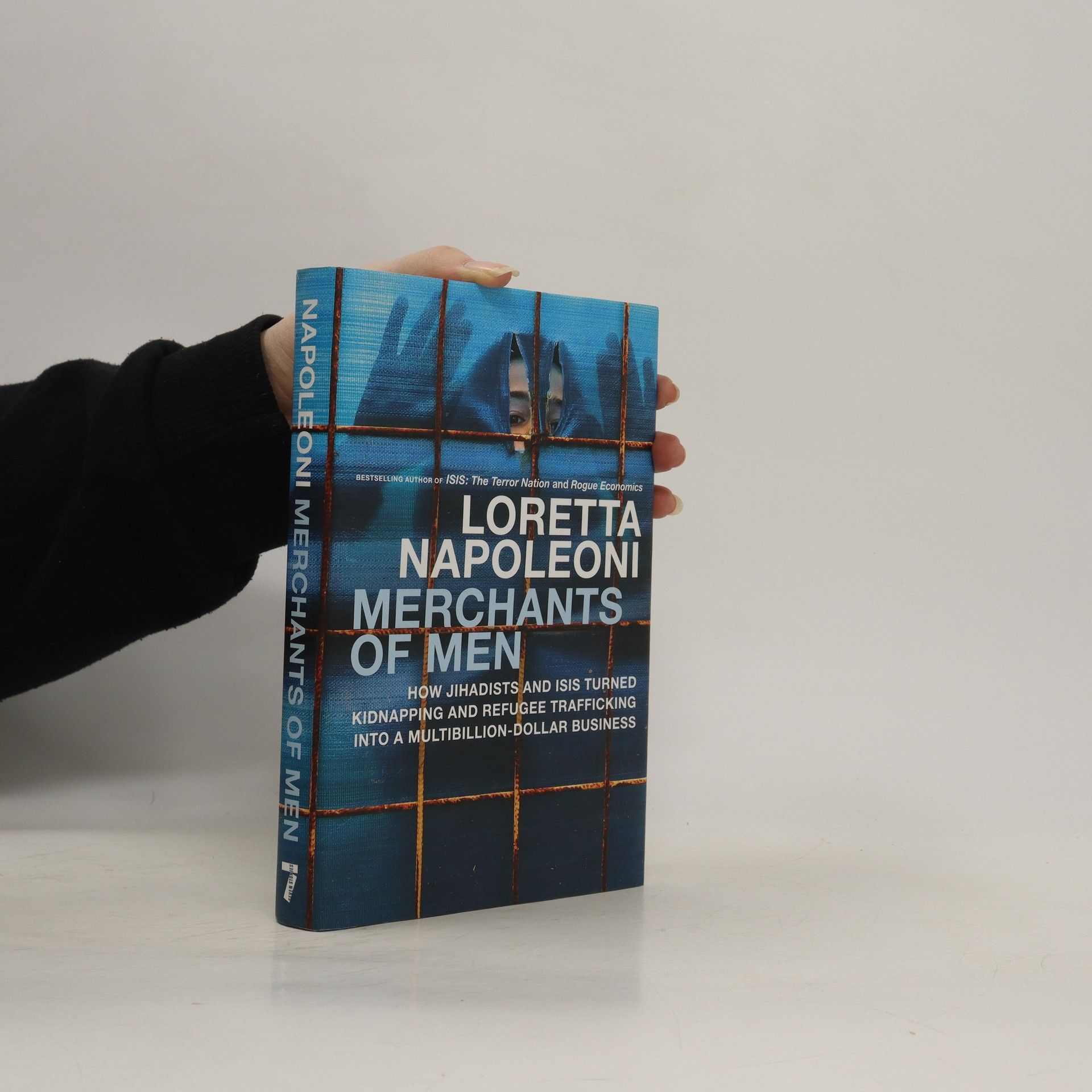
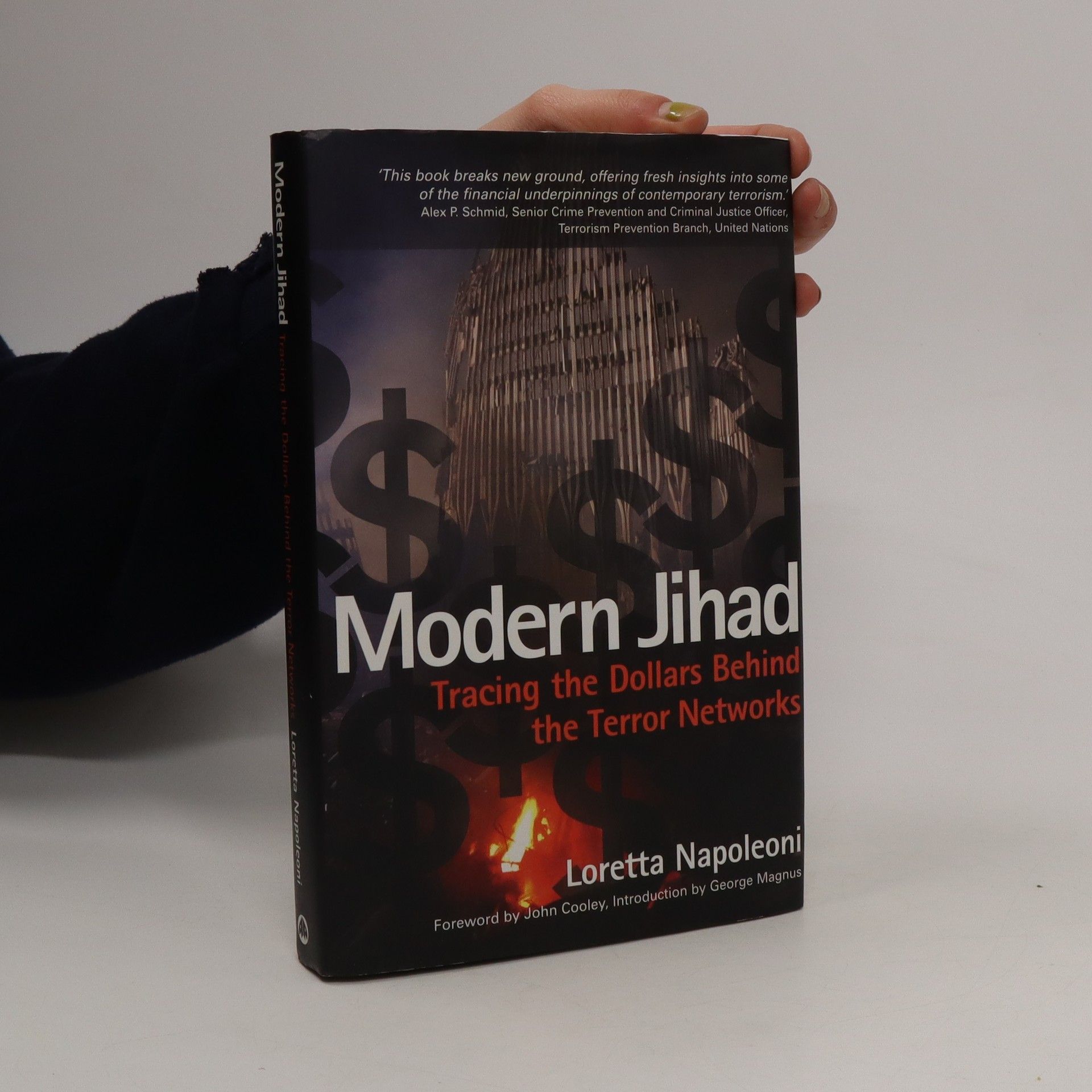

Severní Korea a dynastie Kimů : nepřítel, kterého rádi nenávidíme
- 240 pages
- 9 hours of reading
O Severní Koreji a vládnoucí dynastii Kimů máme omezené znalosti. Média často vykreslují tuto zemi jako uzavřenou říši zla, která hrozí jadernými zbraněmi. Autorka se snaží hlouběji porozumět korejskému systému a odhalit, proč je Severní Korea taková, jaká je. Kim Čong-un se jeví jako tyran, jehož výhrůžky jsou nevyzpytatelné a situace v zemi se zdá být chaotická. Napoleoni se však snaží překročit tradiční pohledy a neomezuje se na euro-americké principy demokracie. Nepodporuje jednoduché rozdělení na dobro a zlo, ale zkoumá, zda je obraz Severní Koreje takový, jaký nám předkládají média. Její kniha obsahuje informace a svědectví diplomatů, disidentů a odborníků a hledá odpovědi v fascinujícím příběhu dvou Korejí a konfliktu studené války. Analyzuje excentrickou realitu severokorejského totalitarismu a snaží se pochopit myšlení národa ovlivněného ideologií čučche, která je zásadní pro vysvětlení psychologického stavu Kimových „poddaných“. Také se zabývá temnou sítí počítačových zločinů, které jsou připisovány Severní Koreji.
Die Macht der Maschen
Wie Stricken uns durchs Leben begleitet und miteinander verbindet
Warum Stricken uns stark und glücklich macht Loretta Napoleoni beschwört das Stricken als wertvolles Band zwischen Menschen: So wie sie selbst das Stricken als Kind von ihrer Großmutter gelernt und dabei viel von ihr über das Leben und die Welt erfahren hat, hat Napoleoni es an ihre Patentochter weitergegeben. In ihrem sehr persönlichen Buch beschreibt sie nicht nur, wie Stricken Menschen und Generationen einander näher bringt, sondern auch wie es der Seele Trost spendet und mitunter sogar therapeutische Wirkung entfaltet. Sie erzählt Geschichte und Geschichten, in denen das Stricken eine Rolle spielt, und schildert vielfältige kulturelle Traditionen, die sich mit dem Stricken verbinden. Durchgehend farbig illustriert und um 10 originelle Strickanleitungen ergänzt, ist Napoleonis Liebeserklärung an das Stricken das ideale Geschenk für alle, die leidenschaftlich gerne zu Nadeln und Wolle greifen. Ausstattung: mit zahlreichen farbigen Abb.
The Power of Knitting
- 224 pages
- 8 hours of reading
Purl and stitch: Empowering, healing, and reconnecting us to each other and ourselvesIn a fractured world plagued by anxiety and loneliness, knitting is coming to the rescue of people from all walks of life. Economist and lifelong knitter Loretta Napoleoni unveils the hidden power of the purl and stitch mantra: an essential tool for the survival of our species, a means for women to influence history, a soothing activity to calm us, and a powerful metaphor of life.This book is a voyage through our history following the yarn of social, economic and political changes - from ancient Egypt and Peru to modern Mongolia, from the spinning bees of the American Revolution to the knitting spies of World War II, and from the hippies’ rejection of consumerism to yarnbombing protests against climate change. For the author it is also a personal journey of discovery and salvation, drawing on the wisdom her grandmother passed along as they knit together.Revealing recent discoveries in neuroscience, The Power of Knitting offers proof of the healing powers of knitting on our bodies and minds. Breaking through societal barriers, even nursing broken hearts, and helping to advance cutting-edge science, knitting is still a valuable instrument for navigating our daily lives.As a bonus, the book includes patterns for ten simple yet iconic projects that reflect the creative, empowering spirit of knitting, with complete instructions.
Obchodníci s lidmi : jak džihádisté a ISIS proměnili únosy a pašování uprchlíků v miliardový byznys
- 272 pages
- 10 hours of reading
Mezi břehy Středozemního moře probíhá rafinovaná a skrytá obchodní výměna. Zbožím jsou uprchlíci ze zbídačelých a násilím zasažených zemí Evropy a Asie, obchodníky džihádisté různého ražení. Tento nový a mimořádně nebezpečný druh organizovaného zločinu se zrodil z neúspěchů západní zahraniční politiky, "války proti teroru", po 11. září 2011 a ze ztroskotání tzv. arabského jara. Obchodníci s lidmi těží z destabilizace celých států a oblastí, od severní Afriky po Levantu. Jsou propojeni s mezinárodními džihádistickými organizacemi, jako jsou různé odnože al-‑Qá‘idy nebo Islámský stát (Dá‘iš) v Sýrii a Iráku. Loretta Napoleoni, expertka na problematiku financování terorismu, sleduje počátky džihádistického byznysu ve formě pašování kokainu ze západní Afriky, únosů cizinců v oblasti subsaharské Afriky a poté organizovaného obchodu s uprchlíky v posledních několika letech. Kniha je založena na zkušenostech těch, kdo se podíleli na vyjednávání o výkupném za unesené Evropany, protiteroristických expertů i bývalých rukojmí teroristů. Přináší nový pohled na jedno z nejnaléhavějších témat dneška.
Merchants of Men
- 288 pages
- 11 hours of reading
A powerful underground business is delivering thousands of refugees daily along the Mediterranean coasts of Europe, driven by a new breed of criminals emerging from the political chaos of post-9/11 foreign policy and the Arab Spring. These "merchants of men" are linked to jihadist organizations like al Qaeda in the Maghreb and have thrived on smuggling cocaine and kidnapping Westerners. The destabilization of Syria and Iraq, along with the rise of ISIS, has opened new avenues for profit, including trafficking millions of refugees and selling Western hostages to jihadist groups. The kidnapping industry has surpassed the illegal drug trade, generating hundreds of billions of dollars annually. This narrative draws on exclusive insights from hostage negotiators, counter-terrorism experts, security service members, and former hostages. Readers will learn how prevention and rescue protocols vary by abduction type and target, gaining a deeper understanding of the experiences of kidnapping victims. The West's historical role in creating political chaos raises questions about its current position as a buyer in the refugee market. As Europe faces a surge of migrants, the demand is for skilled, educated individuals, prompting urgent inquiries about the implications of this crisis.
Die Menschen, die zu Tausenden an Europas Küsten stranden, fliehen vor dem Krieg in Syrien und Irak, und sie legen ihr Schicksal dafür ausgerechnet in die Hände der Nutznießer dieses Kriegs: Kidnapper, Schmuggler, Dschihadisten. Im Zentrum des Machtvakuums, das die Interventionen des Westens nach 9/11 im Nahen Osten und in Libyen hinterlassen haben, ist ein einträgliches neues Geschäftsmodell entstanden. Aus der Not der Flüchtlinge machen Schlepper ein Milliardengeschäft. Aber auch Entführungen sind eine lukrative Finanzierungsquelle für den Terror, und ihre Opfer sind zumeist westliche Journalisten oder Mitarbeiter von Hilfsorganisationen. Loretta Napoleonis neues Buch basiert auf einer Vielzahl von exklusiven Gesprächen mit ehemaligen Geiseln, Unterhändlern und Mitarbeitern der Vereinten Nationen oder des Internationalen Komitees vom Roten Kreuz u. a. Aus diesen Protokollen wird das hochprofessionelle Netzwerk von Menschenhändlern deutlich, das sich von Westafrika über Libyen und von Syrien bis nach Europa erstreckt und aus dem heute Terrororganisationen wie al-Quaida und der sogenannte Islamische Staat buchstäblich Kapital schlagen – die Mitauslöser der Flüchtlingskrise sind gleichzeitig deren größte Profiteure.
Im Jahr 2014 trat die Terror-Miliz 'Islamischer Staat' mit brutaler Vehemenz in den Fokus der Öffentlichkeit und begann, die politische Landkarte des Nahen Ostens neu zu ordnen. Die Autorin Loretta Napoleoni, eine Expertin für Terrorismus, untersucht den Aufstieg des IS und beleuchtet die entscheidenden Ereignisse, die zu seiner Entstehung führten, insbesondere ab 2003 nach der US-Invasion im Irak und dem Bürgerkrieg in Syrien seit 2011. Sie stellt heraus, dass der IS sich grundlegend von anderen terroristischen Organisationen wie al-Qaida unterscheidet. Napoleoni argumentiert, dass der IS über Ressourcen und Strategien verfügt, die ihm eine dauerhafte Staatenbildung ermöglichen. Die mittelalterliche Brutalität des IS und seine ausgeklügelte mediale Selbstinszenierung über soziale Netzwerke sind zwei scheinbar widersprüchliche Aspekte, die die Organisation nutzt, um die dramatischen Umbrüche in der Region und die technologischen Möglichkeiten des 21. Jahrhunderts auszuschöpfen. Die Autorin fragt, was wir über den IS wissen und welche Missverständnisse über diese komplexe Organisation bestehen.
The Islamist Phoenix
- 136 pages
- 5 hours of reading
From its birth in the late 1990s as the jihadist dream of terrorist leader Abu Musab al Zarqawi, the Islamic State (known by a variety of names, including ISIS, ISIL, and al Qaeda in Iraq) has grown into a massive enterprise, redrawing national borders across the Middle East and subjecting an area larger than the United Kingdom to its own vicious brand of Sharia law. In The Islamist Phoenix, world-renowned terrorism expert Loretta Napoleoni takes us beyond the headlines, demonstrating that while Western media portrays the Islamic State as little more than a gang of thugs on a winning streak, the organization is proposing a new model for nation building. Waging a traditional war of conquest to carve out the 21st-century version of the original Caliphate, IS uses modern technology to recruit and fundraise while engaging the local population in the day-to-day running of the new state. Rising from the ashes of failing jihadist enterprises, the Islamic State has shown a deep understanding of Middle Eastern politics, fully exploiting proxy war and shell-state tactics. This is not another terrorist network but a formidable enemy in tune with the new modernity of the current world disorder. As Napoleoni writes, "Ignoring these facts is more than misleading and superficial, it is dangerous. 'Know your enemy' remains the most important adage in the fight against terrorism." From the eBook edition.
Der Westen begegnet China noch immer mit Vorurteilen. Dabei wäre es höchste Zeit umzudenken. Während bei uns die Wirtschaft außer Rand und Band gerät, hat in China der Staat noch immer die Zügel in der Hand. Ist mehr staatliche Lenkung das Erfolgsmodell des 21. Jahrhunderts? Siegte mit dem Ende des Kalten Krieges der westliche Kapitalismus über den Kommunismus? Keineswegs, sagt Loretta Napoleoni. Mit dem Ende des Kalten Krieges setzte vielmehr der Untergang des westlichen Kapitalismus ein – und der Sieg der sozialistischen Marktwirtschaft mit profitorientiertem Denken. In ihrem Buch zeichnet die Bestseller-Autorin den unaufhaltsamen Aufstieg des chinesischen Wirtschaftswunders nach und vergleicht dieses mit den maroden Verhältnissen im Westen. Loretta Napoleoni stellt viele westliche Gewissheiten infrage: Was verstehen wir tatsächlich unter Demokratie? Wie 'gerecht' ist unsere Gesellschaft? Wie stark wird unsere Politik von der Wirtschaft und den Medien gesteuert? China hat uns einiges voraus. Der Westen hat es nur noch nicht bemerkt. Höchste Zeit für dieses aufrüttelnde Buch.
